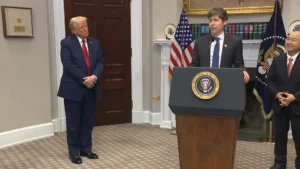
US, UK, and Australia Collaborate to Test and Enhance Military Autonomous Systems
Representatives from the United States, United Kingdom, and Australia recently completed a joint trial of autonomous military systems to evaluate how they perform in contested environments. The tests, conducted under the AUKUS treaty for defense technology collaboration, aimed to push the boundaries of robotic systems and identify any gaps that need to be addressed to make them more resilient on the battlefield. By denying GPS, communications, and utilizing electronic countermeasures, the trials provided a glimpse at how unmanned systems need to evolve to operate in the face of adversary threats. Early indications suggest the collaborative effort has been beneficial for advancing autonomous capabilities across the three allied nations.
The trial, called Trusted Operation of Robotic Vehicles in Contested Environments (TORVICE), was held in Australia and aimed to test robotic vehicles and sensors in situations involving electronic attacks, GPS disruption, and other threats. The goal was to evaluate the resilience of autonomous systems expected to play a major role in future military operations.
Dstl technical authority Guy Powell said: “We need to understand how robust these systems are when subject to attack. Robotic and autonomous systems are a transformational capability being introduced across our militaries.”
AI Robotic Capability in Contested Environments
The goal of this trial is to test the capability of robotic and autonomous systems to operate in contested environments where effects like denied GPS or communications may be brought to bear on them.
Understanding vulnerabilities and gaps to improve resilience of these systems through collaboration between the three nations (US, UK, Australia) is a key aim.
Autonomous systems and technologies are seen as a game-changer that can provide operational advantage on the battlefield – for example, by deploying different payloads over a wide area or sending robots places where soldiers would face more risk.
The teams are pushing boundaries in experimenting with these systems and collaborating closely under the AUS/UK/US (AUKUS) framework.
Each nation brings complementary strengths – e.g. autonomous platforms from US and UK, counter-effects from Australia.
This allows transformational capabilities to be introduced across the armies of the three nations.
The key benefit highlighted is bringing together technologies, know-how, and capabilities to progress autonomous systems that meet warfighters’ needs through collaboration.











